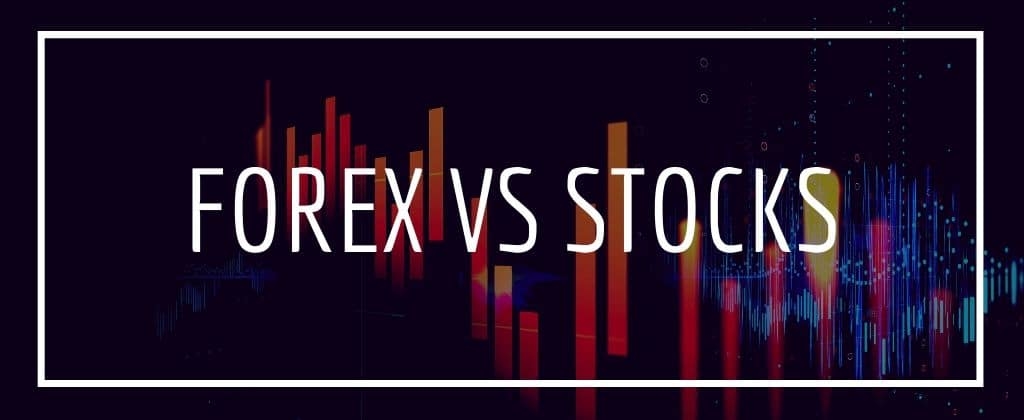
When choosing a platform for trading, users often compare Forex and stock trading.. These are two general areas where, for profit, you need to perform similar actions. You need to choose a working asset → to make a forecast → limit the amount of loss → to enter the deal and wait for the result. If everything is done correctly, then the difference between the entry and exit points will make up your earnings. If the scenario breaks, then you will lose only a part of the deposit, and in the next transaction, you can compensate for the loss. There is a positive expectation in both markets, and you can interrupt a series of losses with one accurate forecast.
Despite the apparent relationship, Forex and the stock market are very different in many additional parameters that are important to consider when choosing a trading style. Let’s go through these parameters and conclude by compiling a comparative table showing what is best to select in different conditions.
Trading volume
It is the first key difference between the sites. About five trillion US dollars are circulating daily on the foreign exchange market, while the load on stock market stocks rarely exceeds the threshold of 200 billion. Such a difference in volumes means that forex orders are processed faster, and the process of opening/closing positions will take place virtually without delay.
Another point is that in Forex, most of the trading volume falls on only four currency pairs: euro/dollar, dollar/Japanese yen, pound/dollar, and Australian dollar/US dollar. The size in the stock market is too spread out and sometimes evenly distributed between a large number of securities. That is, an unprepared trader needs to spend more time searching for optimal instruments for implementing a prepared trading strategy.
Liquidity
Liquidity is when you have the opportunity at any time to buy or sell the right amount of available assets. Here, a clear advantage is fixed for Forex, since the more trading volume on the market, the higher liquidity can be expected. If there are problems with liquidity, then this immediately appears on the quality of the chosen trading algorithm. The less money is poured into the trading asset, the more unpredictable is the dynamics. For example, if today, the shares of XXX are backed up with sufficient capital, then you can count on high liquidity and the smooth operation of your strategy. If tomorrow more than half of the money is out of these shares, then liquidity will decrease, and the exchange rate will become impossible to predict. Any major player will have the opportunity to manipulate this share, and winning will depend only on luck.
Moreover, liquidity affects the cost of transaction costs that traders have to pay for each transaction. The more intensive the transactions are, the fewer fees will have to be paid. All beginners who come into trading with limited capital should pay special attention to this parameter.
Schedule
Forex is a decentralized trading platform that is not tied to any country and operates around the clock from Monday night to Friday night. That is, during the working week you can engage in trading at any time and even at night, you will be available to the line of all currency pairs.
The stock market works on a different schedule – this is not a common place to which you can connect from anywhere in the world. It is a lot of different platforms that are scattered across different countries, work according to their 8-hour schedule, and are divided depending on how many trading assets are drawn to them. For example, if a trading strategy is tailored to work with Google shares (GOOGL ticket), then you will have to adapt to the schedule of the American NASDAQ exchange. You can conduct transactions only from Monday to Friday from 17.30 to 00.00 (Moscow time). Bidding is not available at any other time.
The limited schedule of the stock market does not cause any problems if you select a small number of stocks or select papers that are combined with the work schedule. In all other cases, there will be difficulties:
Too many stocks
There are few stocks, but they do not fit into the schedule
Suppose you decide to invest in the economies of developed countries and choose the United States, Britain, Australia, Japan, and China. You conducted a thorough analysis and from each exchange selected ten shares of the most successful companies – made a bet on blue chips and scored 50 securities in the investment portfolio. You do not like the buy-and-hold tactics and prefer to speculate daily with your assets.
And now the situation is different: you have developed a high-quality trading system that works stably with only five shares of the London LSE, which works five days a week from 11:00 to 19:30.
↓
↓
Now you need to adjust to the schedule of those stock exchanges on which the necessary shares are traded in each of the countries.
The USA represents the NYSE and NASDAQ exchanges (both work from 17:30 to 00:00), NYMEX (from 16:20 to 22:30) and there are still small sites that we do not take into account now.
The UK is represented by the London Stock Exchange LSE, operating from 11:00 to 19:30.
In Australia, you need to follow the ASX exchange, which runs from 3:00 to 9:00.
According to the Australian schedule, the Tokyo Exchange TSE (Japan) also operates. Hong Kong (HKSE) and Shanghai (SSE) exchanges operate in China, which opens at 5:00 and closes at 11:00.
You are busy from 8:00 to 20:00 and during business hours there is no way to open LSE charts and in any way follow the process.
↓
↓
If we compare the work schedule of all the listed exchanges, it turns out that you need to monitor quotes from 3:00 to 00:00. Only three hours a day remains for sleep and all personal affairs. Plus, you need to make sure that you competently combine trading with your main job or make speculation the primary source of income. Under other conditions, the conceived algorithm will be violated, and daily transactions will not work.
To conduct transactions without system violations, you need to program a trading robot or work only on vacation. In the first case, you will not be in full control of the situation and risk losing a deposit. In the second case, you will not have enough time to implement the principle of positive expectation – if, during the holidays you get a negative result, you will have to wait a long time for a new attempt.
If you cannot plan your schedule, then do not look at other parameters and immediately bet on Forex. It is how you will work when it is convenient. With the stock market, this will not work, and problems with the schedule will lead to a systematic violation of the trading algorithm, which in turn will not allow you to conduct a qualitative analysis and count on the stable income.
Commissions and fees
Almost all Forex companies have refused commission fees and receive the main profit from spreads – small fees charged for each open transaction. The size of the spreads can be changed or broadcast at a fixed rate – this is an individual characteristic that each broker determines independently in the rules of the user agreement.
When trading stocks on any stock exchange, there is both a spread and additional payments that you need to pay to activate the order. There are still separate fees for servicing the created account and other mandatory contributions, which each company determines at its discretion. Usually, the larger and more developed the stock market, the more commissions you will have to pay.
Number of trading assets
On Forex, only eight currency pairs are included in the basket of “majors” – the main trading assets with which 90% of all traders in the world work. There are still several hundred additional currency pairs that are not quoted by many brokers. That is, these pairs exist, but are not available to private traders. Typically, additional assets are used by large companies for business purposes.
The number of shares is much larger, and on the NASDAQ exchange alone, each trader has more than three thousand securities available. With such a variety, it is difficult to follow economic news and monitor quotes daily, given that the trading strategy is not tied to any particular set of assets.
Leverage
It is another significant technical difference that distinguishes between Forex and stock trading in the stock market (Forex vs Stocks). In the forex market, almost every broker has leverage in the range from 1:50 to 1: 100. It is not difficult to find such companies where the size of the shoulders is increased to 1: 200, 1: 500 or 1: 1000 – these are the basic conditions available to beginners with any deposit.
When trading stocks on the stock market, leverage is not used. It can only be received by qualified participants who have sufficient capital, experience, and reserve assets for this (each exchange has its own rules). If you meet all the requirements, then in most cases, you will get leverage of 1:2. An increased ratio is more difficult to get, and it is not available to everyone.
Market regulation
Most forex brokers work without any actual regulation and, at their discretion, can change the rules and procedures for working with clients. They can change tariffs, minimum deposit requirements, account verification conditions, bonus accrual procedures, and other conditions. If the broker turns something, not in favor of the client, then it will be difficult for the latter to influence the company somehow and protect the violated rights. There is no general legal framework.
The stock exchanges of all countries are fully regulated, and therefore, each broker has a set of mandatory rules, without which he cannot register new customers. It is inconvenient and does not suit many, but the fraud and interference of the company in the activities of the trader are completely excluded.
Which is better to choose
We examined the main characteristics that distinguish Forex from trading stocks on the stock market. The general impression is this: it is more comfortable to start and more convenient at Forex, but only the stock exchange can guarantee the safety of the trading account. If you do not take security into account and focus on the trading style, the situation will be as follows:
Trading style
Scalping and Pipsing
Which market is better to choose
The forex market is more suitable here since you can choose currency pairs with a minimum spread and not pay additional commissions. In the stock market, the number of mandatory payments may exceed the amount of income received.
Intraday trading / Medium-term trading
Here, approximately the same conditions are provided in each market, and it all depends on what the trader prefers. If saving, quick execution of orders and the possibility of round-the-clock access to all charts are important, then you need to choose forex. If safety comes first, then the stock exchange should be preferred.
Position trading
If you plan to conduct a small number of transactions and earn money by long-term retention of trading positions, then you need to choose the stock market. Here, the ATR (power reserve) of almost every popular stock exceeds the performance of all currency pairs. For example, a pair of euros/dollars will take about a year to go one way 1000 points. Stocks will need several months to cover the same distance. Therefore, all strategies close to the classical methods of investing work better on the stock market.
If after studying the material, it is difficult for you to make a choice, try looking at a comparison of the forex market with futures and binary options. If you stop at Forex – before bidding, look at the material about its advantages and disadvantages. Write in the comments what you chose and why?




